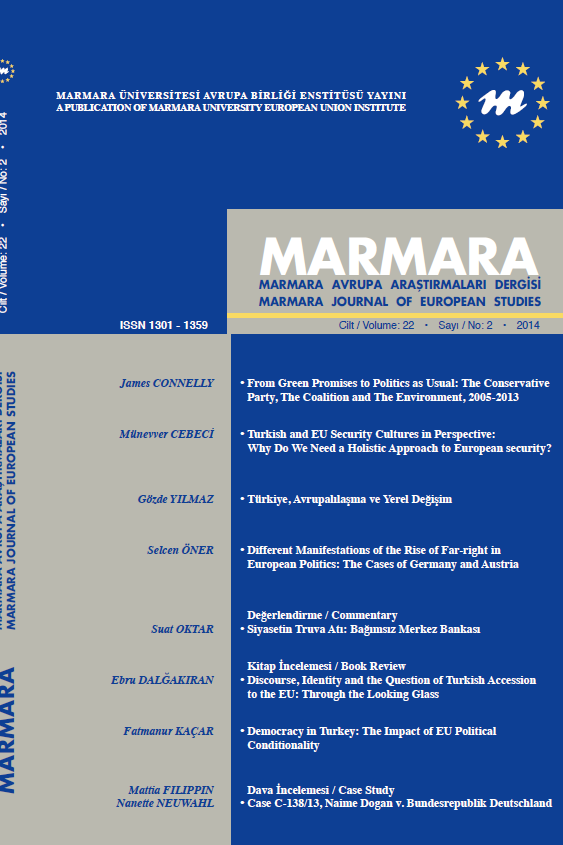THE CONDITIONAL OFFER OF MEMBERSHIP AS AN INSTRUMENT OF EU FOREIGN POLICY: RESHAPING EUROPE IN THE EU'S IMAGE
The European Union directed its efforts in creating stability and security in Europe towards the enlargement to the east and to the south starting from the end of the 1980s. Connected to this political effort was the offering of conditional membership in the EU, especially to the central and eastern European countries (CEES) as a means ofcreating a new European order in the post-Cold War era. Conditional membership means the adopting ofthe political and economic reforms according to the model presented by the EU Member States. The present enlargement issue o f the EU, differing from the previous enlargements, constitutes an importantforeign policy goal ofthe Community and therefore brings an imposition upon the candidate countries to adopt specific development directions according to certain characteristics. Support is provided conditionally only to such developments and policy changes in the candidate countries. Karen E. Smith, in this study, presents an analysis ofthe political and economic transformations in central and eastern European countries as well as in Cyprus and Turkey in the process ofcandidacy and evaluates the estimated gains with respect to the foreign policy goals o f the European Union.
Anahtar Kelimeler:
-
THE CONDITIONAL OFFER OF MEMBERSHIP AS AN INSTRUMENT OF EU FOREIGN POLICY: RESHAPING EUROPE IN THE EU'S IMAGE
The European Union directed its efforts in creating stability and security in Europe towards the enlargement to the east and to the south starting from the end of the 1980s. Connected to this political effort was the offering of conditional membership in the EU, especially to the central and eastern European countries (CEES) as a means of creating a new European order inthe post-Cold War era. Conditional membership means the adopting of the political and economic reforms according to the model presented by the EU Member States. The present enlargement issue of the EU, differing from the previous enlargements, constitutes an important foreign policy goal of the Community and therefore brings an imposition upon the candidate countries to adopt specific development directions according to certain characteristics. Support is provided conditionally only to such developments and policy changes in the candidate countries. Karen E. Smith, in this study, presents an analysis of the political and economic transformations in central and eastern European countries as well as in Cyprus and Turkey in the process of candidacy and evaluates the estimated gains with respect to the foreign policy goals of the European Union.
Keywords:
CONDITIONAL, OFFER MEMBERSHIP,
___
- -
- ISSN: 1301-1359
- Yayın Aralığı: Yılda 2 Sayı
- Yayıncı: Marmara Üniversitesi
Sayıdaki Diğer Makaleler
EURO VE DÜNYA EKONOMİSİ: BÖLGESEL ETKİLER
"KNOW-HOW" VE TİCARİ SIRLAR (TEKNOLOJİ TRANSFERİ VE FİKRİ HAKLARLA İLGİLİ LİSANS ANLAŞMALARI)
THE ECONOMIC CO-OPERATION ORGANISATION (ECO): REALITY OR UTOPY?
STATE AIDS AND THE CONSEQUENCES OF THEIR ILLEGALITY UNDER EC LAW
